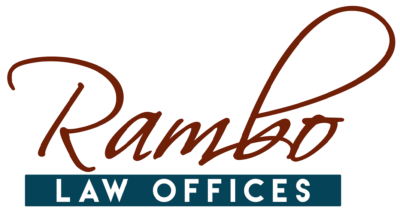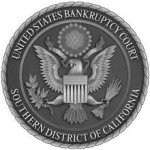The 7 Most Common Bankruptcy Mistakes
Request your free copy now!!
In your bankruptcy papers, you must disclose to the court all of your assets and debts. In many cases, you are allowed to keep all your assets pursuant to the "exemption" statutes provided for by law. In other words, exempt assets are protected from the reach of your creditors and you are allowed to keep them.
On the other hand, certain assets are non-exempt or only partially exempt, which means they are not protected from your creditors and you might lose them in your bankruptcy. People who file bankruptcy without an attorney frequently assume they don't have to worry about this issue because they don't have any assets to lose. And sadly, they learn the hard way that they had more to lose than they ever imagined. For example, you could lose a tax refund that you receive the year AFTER filing bankruptcy. See the Bankruptcy Landmines page for more information.
In many cases, there are things that can be done prior to filing your bankruptcy that will eliminate this issue, so proper planning with a knowledgeable attorney is imperative. You also have the option of buying your non-exempt assets back from the bankruptcy estate, although that can be tricky. Asset protection is one of the many reasons that having a good attorney is critical.
Note that exemptions apply to the "equity" you have in an asset, which is not necessarily the same thing as the value of the asset. Equity is the difference between the fair market value and any outstanding loans or liens against an asset. And, if there are multiple owners of an asset, then only the value of your equity/ownership interest applies. If there is no equity in an asset then there is nothing to exempt and there is no value for your creditors to get.
Both Arizona and California are opt-out states, which means that utilizing state exemptions is required and taking the federal exemptions is not an option. Below are lists of Arizona and California state exemptions so you can get an idea of what types of assets are protected. Note that the applicable value is not the "retail" or "replacement" value; it's the "fair market value," which is often considerably less. The amounts are valid as of January 1, 2013, and periodically change.
Note that you should not rely on this data when filing a case without the advice of an attorney because the data in these lists is more complicated than it appears. For one thing, there are additional rules that apply in the application of certain exemptions. Additionally, you might be entitled to various federal exemptions as well. And finally, if you haven't lived in the state for a minimum of 730 days (two years) prior to filing, then you probably don't qualify for these exemptions, and it can be complicated to determine which exemptions apply to you.
In your bankruptcy papers, you must disclose to the court all of your assets and debts. In many cases, you are allowed to keep all your assets pursuant to the "exemption" statutes provided for by law. In other words, exempt assets are protected from the reach of your creditors and you are allowed to keep them
On the other hand, certain assets are non-exempt or only partially exempt, which means they are not protected from your creditors and you might lose them in your bankruptcy. People who file bankruptcy without an attorney frequently assume they don't have to worry about this issue because they don't have any assets to lose. And sadly, they learn the hard way that they had more to lose than they ever imagined. For example, you could lose a tax refund that you receive the year AFTER filing bankruptcy. Please see the Bankruptcy Landmines page for more information.
In many cases, there are things that can be done prior to filing your bankruptcy that will eliminate this issue, so proper planning with a knowledgeable attorney is imperative. You also have the option of buying your non-exempt assets back from the bankruptcy estate, although that can be tricky. Asset protection is one of the many reasons that having a good attorney is critical.
Note that exemptions apply to the "equity" you have in an asset, which is not necessarily the same thing as the value of the asset. Equity is the difference between the fair market value and any outstanding loans or liens against an asset. And, if there are multiple owners of an asset, then only the value of your equity/ownership interest applies. If there is no equity in an asset then there is nothing to exempt and there is no value for your creditors to get.
Both Arizona and California are opt-out states, which means that utilizing state exemptions is required and taking the federal exemptions is not an option. It's not as straight-forward as it sounds though because there are additional rules that apply in the application of certain exemptions. Additionally, you might be entitled to various federal exemptions as well. And finally, if you haven't lived in the state for a minimum of 730 days (two years) prior to filing, then you probably don't qualify for these exemptions, and it can be complicated to determine which exemptions apply to you.
Arizona Bankruptcy Exemptions
Asset Type
Exemption Amount
Homestead/residence (equity).
$150,000 (cumulative for both spouses). Includes identifiable cash proceeds from the sale for 18 months after the sale.
Motor vehicle (equity).
$6,000 (each spouse), or $12,000 per disabled debtor or dependent of debtor.
Wearing apparel
$500 (each spouse)
Engagement or wedding rings.
$1,000 (each spouse)
Household furniture, furnishings, household goods, including consumer electronic devices, and household appliances personally used by the debtor or a dependent of the debtor and not otherwise specifically prescribed in this chapter.
$6,000 aggregate value (each spouse)
Food, fuel and provisions for 6 months used by Debtor and family.
100%
Musical instruments of Debtor and family.
$400 (each spouse)
Domestic pets, horses, milk cows and poultry.
$800 (each spouse)
Engagement and wedding rings.
$2,000 (each spouse)
Retirement plan qualified under IRS Code 401(a), 403(a)(b), 408, 408 (a), 409, 457 (deferred comp).
100%, except contributions made within 120 days before filing. (Additional federal protection might be available.)
529 account (college savings plan) under IRS code.
100% except contributions within two years before filing petition
Library.
$250 (each spouse)
Typewriter, one computer, bicycle, sewing machine, family bible, burial lot, rifle, shotgun or pistol (one gun only).
$1,000 aggregate (each spouse)
Net Wages (includes pension and retirement earnings).
75% of net wages or 30 times the federal minimum hourly wage, whichever is greater, earned as of the date of filing (each spouse).
Watch.
$150 (each spouse)
Wheel chair and proscribed health aids.
100%
Pre-paid rents and security deposits for Debtor's residence.
$2,000 (each spouse).
Life insurance proceeds paid or payable to surviving spouse or child.
$20,000
Health, accident or disability insurance.
100% (certain debts excepted)
Insurance proceeds for damage or destruction of property.
100% of exemption given for damaged or destroyed property.
Cash surrender value of life insurance policies owned by Debtor (for at least 2 continuous years).
100% (beneficiary must be a dependent
Annuity (owned by Debtor, not annuity company) for at least 2 years.
100% (beneficiary must be a minor and a dependent).
One single bank account.
$300 (each spouse)
Student loan proceeds.
100% (limited)
Necessary tools, equipment, instruments, books marketing tools and intangible work product used in business or profession.
$5,000 (each spouse). Does not include personal motor vehicle
Child support or maintenance.
100%
Social security benefits (protected in bank account if not co-mingled with other funds).
100%
California Bankruptcy Exemptions
In California, you must elect one of two different sets of exemptions.
Option 1
§703
Option 2
§704
$24,060 in any property used as a residence, or a burial plot. Any unused portion can be applied to any personal property, plus $1,280.
$75,000 to $175,000 equity in a residence (amount depends on age, marital status and income).
$4,800 motor vehicle.
$2,725 motor vehicle.
$600 per item in clothing, household goods, furnishings, etc.
Reasonably needed household goods, furnishings and clothing. Burial plots.
$1,425 jewelry.
$7,175 jewelry, heirlooms and art.
$7,175 books/tools of the trade.
$7,175 to $14,350 books/tools of the trade (depending on marital status and employment).
Personal injury recoveries to $24,060 (not to include pain and suffering or pecuniary loss).
Personal injury recoveries needed for support.
Aggregate interest in any accrued dividend or interest under any unmatured life insurance contract owned by the debtor if the insured is the debtor or someone of whom the debtor is a dependent. $12,860.
Unmatured life insurance contract owned by the debtor, other than a credit life insurance contract.
Disability or health benefits. Matured life insurance benefits needed for support. Unmatured life insurance loan value $10,775 to $21,550 (depending on marital status).
Alimony or child support needed for support.
Property of business partnership. Business or professional license, except liquor licenses. Inmates trust funds to $1,350.
Some pensions and other employment benefits.
Most pensions.
Health aids for debtor or dependents.
Health aids.
Social security; unemployment; Veteran's benefits; public assistance; disability.
Social security; public benefits; student financial aid; unemployment; AFDC; aid to blind, aged, or disabled; worker's compensation, relocation benefits.
No wages.
75% of wages paid within 30 days of filing for bankruptcy. Public employees vacation credits, if receiving installments, at least 75%.
We are Proud to be a Designated Debt Relief Agency under Federal Law and We Provide Legal Assistance to Consumers Seeking Relief Under the Bankruptcy Code.
The information contained herein is for informational purposes only. It is not intended to constitute legal advice or to create an attorney-client relationship. We do not make any recommendations or endorsement as to any legal issue or procedure discussed. The nature of any particular legal issue should be considered on a case-by-case basis, and the information described herein is not necessarily a guide to your individual circumstances. It is advised that you seek independent legal advice to determine your particular legal needs.
Copyright © 2003 by Rambo Law Offices







